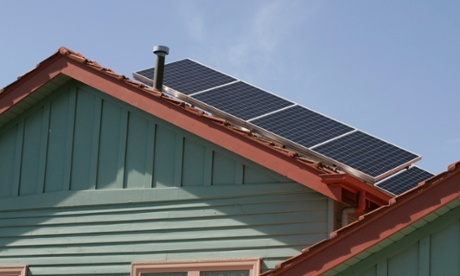As early as 2018, solar could be economically viable to power big cities. By 2040 over half of all electricity may be generated in the same place it's used. Centralised, coal-fired power is over
 Last week, for the first time in memory, the wholesale price of electricity in Queensland fell into negative territory – in the middle of the day.
Last week, for the first time in memory, the wholesale price of electricity in Queensland fell into negative territory – in the middle of the day.
For several days the price, normally around $40-$50 a megawatt hour, hovered in and around zero. Prices were deflated throughout the week, largely because of the influence of one of the newest, biggest power stations in the state – rooftop solar.
“Negative pricing” moves, as they are known, are not uncommon. But they are only supposed to happen at night, when most of the population is mostly asleep, demand is down, and operators of coal fired generators are reluctant to switch off. So they pay others to pick up their output.
That's not supposed to happen at lunchtime. Daytime prices are supposed to reflect higher demand, when people are awake, office building are in use, factories are in production. That's when fossil fuel generators would normally be making most of their money.
The influx of rooftop solar has turned this model on its head. There is 1,100MW of it on more than 350,000 buildings in Queensland alone (3,400MW on 1.2m buildings across the country). It is producing electricity just at the time that coal generators used to make hay (while the sun shines).
The impact has been so profound, and wholesale prices pushed down so low, that few coal generators in Australia made a profit last year. Hardly any are making a profit this year. State-owned generators like Stanwell are specifically blaming rooftop solar.
Tony Abbott, the prime minister, likes to say that Australia is a land of cheap energy and he’s half right. It doesn’t cost much to shovel a tonne of coal into a boiler and generate steam and put that into a turbine to generate electricity.
The problem for Australian consumers (and voters) comes in the cost of delivery of those electrons – through the transmission and distribution networks, and from retail costs and taxes.























